Near the Mid Autumn Festival, various moon cake iron boxes with exquisite patterns can be seen everywhere. The moon cake iron boxes on the market are getting better and better each year. Of course, a good Iron Box is not measured by its beautiful appearance, but by its good quality. Good quality. We can use it again after using it. Then, how to judge whether the quality of the iron box has reached the standard? Food Tin Box,Tinplate Food Can,Vintage Lunch Box,Tin Lunch Box,Food Iron Box Dongguan Tielangtou Hardware Products Co., Ltd , https://www.tinboxtlt.com
When we first see the iron box, we will have an objective judgment on the box. The first thing we see is the surface of the iron box. The information reflected on the box surface, such as patterns, printing, barcodes, models and specifications, is not randomly placed. It has certain rules. The randomly printed iron box is already unqualified on the surface. Again, check the box surface for scratches, and the printed surface shall not be greater than 0.3mm * 20mm. On the front side, the pattern of the product surface is placed directly in front of and below the sunlight. In addition to the main viewing surface of the box, you can also see the inner surface, side, bottom, etc.
The above are the tips that can manufacturers share with you on how to judge whether boxes are standard. Have you learned?
Power Generation Industry Use Cases for Indoor Drones: An Overview of Assets and Applications
Curious about how indoor drones are being utilized in the power generation sector? Here’s a deeper look into the innovative ways these drones are transforming the industry.
The primary function of indoor drones in this field is to gather visual data remotely during internal inspections. Below, we’ll explore the various applications of indoor drones in power generation, including:
- **Key Use Cases**: A detailed overview of how drones are employed across different assets.
- **Case Studies**: Real-world examples showcasing successful drone missions in power generation.
---
### Key Applications of Indoor Drones in Power Generation
Indoor drones are increasingly relied upon to inspect critical assets in power generation facilities. Here’s a breakdown of some of the most common applications:
#### Coal-Fired Boilers
When inspecting coal-fired boilers, drones help assess the condition of burners, refractory materials, and superheater piping inside the combustion chamber. They also identify blockages and wear and tear in air pre-heaters.
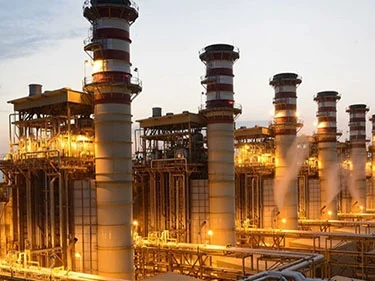
*Image Source: [bsg-i.nbxc.com]*
#### Heat Recovery Steam Generator (HRSG)
During power outages in combined cycle plants, drones are deployed to evaluate the integrity of supporting pins, burners, and lancers within an HRSG. This ensures safe and efficient operations once the plant resumes activity.
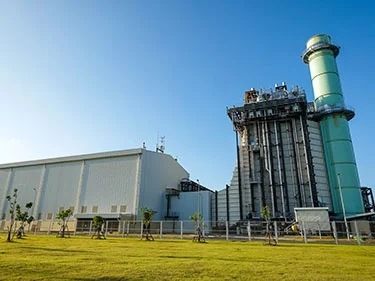
*Image Source: [bsg-i.nbxc.com]*
#### Wind Turbines
Drones are invaluable for inspecting wind turbine blades during scheduled maintenance periods. Additionally, they offer access to hard-to-reach areas like the turbine's pillars and basements while it is operational.
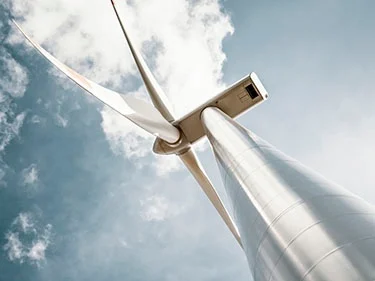
*Image Source: [bsg-i.nbxc.com]*
#### Pulp and Paper Mill Recovery Boilers
These drones provide visual assessments of refractory materials, burners, tubes, and pipes in recovery boilers. Inspections occur during routine or emergency shutdowns to ensure optimal performance.
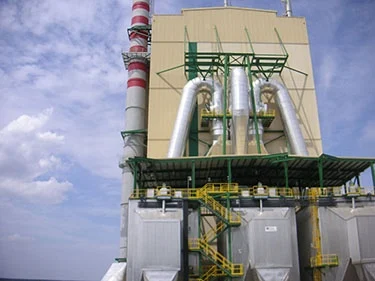
*Image Source: [bsg-i.nbxc.com]*
#### Asset Commissioning
Prior to commissioning new systems, drones verify the quality of construction work by capturing high-resolution images of coal-fired boilers and other key infrastructure.
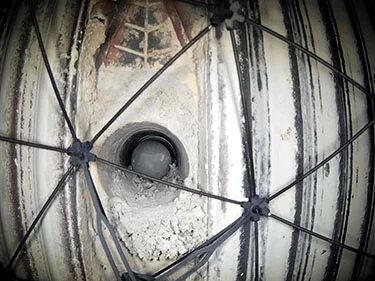
*Image Source: [bsg-i.nbxc.com]*
#### Nuclear Power Plants
In nuclear facilities, drones assist in identifying potential leaks and evaluating equipment in radioactive zones without exposing human workers to harmful radiation.
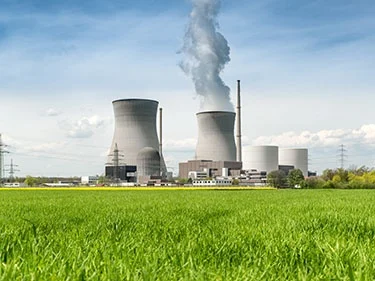
*Image Source: [bsg-i.nbxc.com]*
#### Waste Incinerators
For waste incinerators, drones visually inspect the refractory materials, burners, tubes, and pipes in the combustion chamber, ensuring compliance during regular or unplanned downtime.
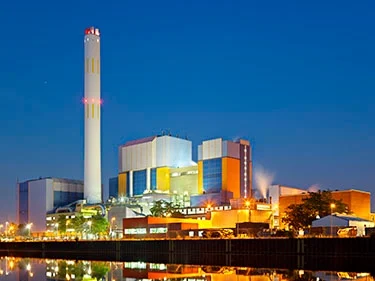
*Image Source: [bsg-i.nbxc.com]*
#### Hydroelectric Power Plants
Drones capture visuals of confined spaces such as surge tanks, water canals, penstocks, and flood gates to assess structural integrity and operational readiness.
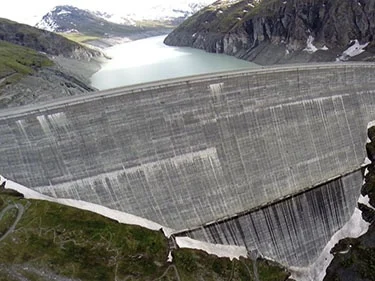
*Image Source: [bsg-i.nbxc.com]*
#### Transformers
Drones collect crucial data about liquid levels and leaks atop high-voltage transformers, aiding in their maintenance and upkeep.
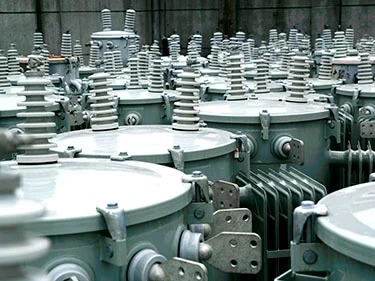
*Image Source: [bsg-i.nbxc.com]*
#### Chimneys/Smokestacks
General visual inspections of chimneys help detect cracks and anomalies from the inside, ensuring structural safety and longevity.
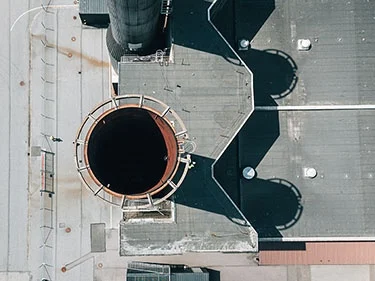
*Image Source: [bsg-i.nbxc.com]*
---
### Real-World Success Stories
To better understand the practical impact of indoor drones, let’s dive into some compelling case studies:
#### Offshore Wind Turbine Blade Inspection with Elios 2
A major power company, Ørsted, conducted trials with the Elios 2 for inspecting offshore wind turbine blades. Results showed that the drone increased inspection coverage by 40% and halved the time required. Safety was also enhanced significantly. [Read More](#).
#### Scrubber Inspection Efficiency Boost
Tennessee Valley Authority (TVA) tested the Elios 2 for inspecting a scrubber unit, achieving a staggering 98% reduction in inspection time—saving nearly 470 hours of labor. Personnel safety improved drastically. [Read More](#).
#### $420,000 Saved in Boiler Inspections
Argentina’s leading energy firm, Pampa EnergÃa, saved $420,000 in its initial trial of the Elios 1 for boiler inspections. Impressed, they later invested in the upgraded Elios 2 model. [Read More](#).
#### Avoiding Dangerous Climbs with DTEK
DTEK, an energy giant in Ukraine, used the Elios 2 for chimney and boiler inspections at one of its power plants. The drone collected inspection data faster than traditional methods, eliminating risky climbs for workers. [Read More](#).
---
As these examples illustrate, indoor drones are revolutionizing the power generation industry by improving efficiency, enhancing safety, and reducing costs. These advancements underscore the immense potential of integrating drones into routine operations. If you’re intrigued by further insights or interested in implementing similar solutions, feel free to reach out!